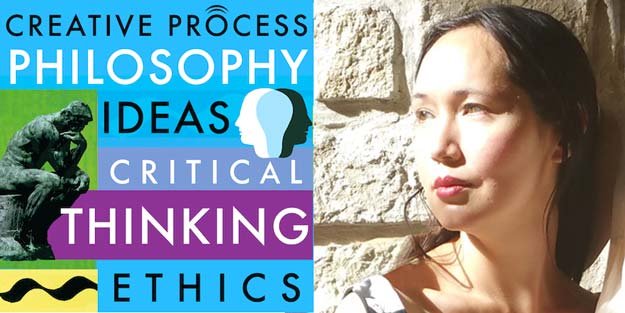William B. Irvine is emeritus professor of philosophy at Wright State University in Dayton, Ohio, USA. He is the author of eight books that have been translated into more than twenty languages. His A Guide to the Good Life: The Ancient Art of Stoic Joy played a key role in the Stoic renaissance that has taken place in recent years. His subsequent Stoic Challenge: A Philosopher’s Guide to Becoming Tougher, Calmer, and More Resilient provides a strategy for dealing, in proper Stoic manner, with the setbacks we experience in daily living. He is currently at work on a book about thinking critically, but with an open mind, in the age of the internet.
WILLIAM IRVINE
Stoicism started in 300 B.C. in Athens. Zeno of Citium was the first Stoic. He created it. He put together components of some other then existing schools of philosophy and started his own school, but what we know primarily are the Roman Stoics. So this would be in the first century B.C. and the first century A.D. in Rome. And the four big names are Marcus Aurelius (who was also an emperor), Seneca (who was also a playright and the first century equivalent of a billionaire), an interestingly complex guy, and Epictetus (who was a successful head of a school of philosophy). Fourth name (less known, but a very important Roman Stoic) is Musonius Rufus, who was actually the teacher of Epictetus. And the interesting thing is, all four of them, you can pick up and start reading them, and you will very quickly sort of say – Oh, I see what they're doing. And I see why it's relevant to my life. And I see how it can be useful to my life.
*
Happiness is another interesting thing. I've been thinking about this lately. You know, people take aim at happiness. I don't know if you can actually do that, if you can have a recipe for attaining happiness. Happiness is something that just happens as a byproduct of something else going on in your life, and that is having a day where you're experiencing equanimity. You don't have this abundance of negative emotions, where you value the things you've already got, where you value the relationships you've got, where you feel good inside your own body. You like being who you are. And I think, if all that happens, then suddenly, you know, it'll dawn on me. “Gosh, I guess I'm happy...”
*
I stumbled across Stoic philosophy and thought it was just wonderful stuff. So, I'd had the exact wrong idea of what it was. Most people do because if they look it up in the dictionary, a Stoic is this glum individual who simply suppresses all emotions, but that isn't what the Stoics were at all. They came up with these really brilliant psychological strategies for retaining our equanimity in the face of life's setbacks, challenges, and tests. And they're brilliant strategies. They are easy to test drive. Stoicism has a very low price of admission... Over the course of a three-day weekend, you can learn what you need. You can test drive it. You can find out what it is. You can find out what these strategies are, and you can try them and see if they make a difference in your life.
Photo credit: Lyndon French
This interview was conducted by Mia Funk and Lyn Flores with the participation of collaborating universities and students. Associate Interviews Producer on this podcast was Lyn Flores. Digital Media Coordinators are Jacob A. Preisler and Megan Hegenbarth.
Mia Funk is an artist, interviewer and founder of The Creative Process & One Planet Podcast (Conversations about Climate Change & Environmental Solutions).
Philosophy, Critical Thinking channel
All Arts, Culture & Society episodes
















































































